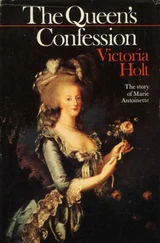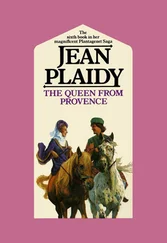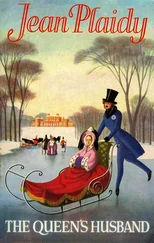Виктория Холт - Loyal in Love - Henrietta Maria, Queen of Charles I
Здесь есть возможность читать онлайн «Виктория Холт - Loyal in Love - Henrietta Maria, Queen of Charles I» весь текст электронной книги совершенно бесплатно (целиком полную версию без сокращений). В некоторых случаях можно слушать аудио, скачать через торрент в формате fb2 и присутствует краткое содержание. Жанр: Исторические любовные романы, на английском языке. Описание произведения, (предисловие) а так же отзывы посетителей доступны на портале библиотеки ЛибКат.
- Название:Loyal in Love: Henrietta Maria, Queen of Charles I
- Автор:
- Жанр:
- Год:неизвестен
- ISBN:нет данных
- Рейтинг книги:5 / 5. Голосов: 1
-
Избранное:Добавить в избранное
- Отзывы:
-
Ваша оценка:
- 100
- 1
- 2
- 3
- 4
- 5
Loyal in Love: Henrietta Maria, Queen of Charles I: краткое содержание, описание и аннотация
Предлагаем к чтению аннотацию, описание, краткое содержание или предисловие (зависит от того, что написал сам автор книги «Loyal in Love: Henrietta Maria, Queen of Charles I»). Если вы не нашли необходимую информацию о книге — напишите в комментариях, мы постараемся отыскать её.
Loyal in Love: Henrietta Maria, Queen of Charles I — читать онлайн бесплатно полную книгу (весь текст) целиком
Ниже представлен текст книги, разбитый по страницам. Система сохранения места последней прочитанной страницы, позволяет с удобством читать онлайн бесплатно книгу «Loyal in Love: Henrietta Maria, Queen of Charles I», без необходимости каждый раз заново искать на чём Вы остановились. Поставьте закладку, и сможете в любой момент перейти на страницу, на которой закончили чтение.
Интервал:
Закладка:
I had heard the story many times and it never failed to move me to tears. I knew how the Duc de Sully had made everyone swear allegiance to my brother and how the entire country mourned, and that the mad monk Ravaillac was caught and torn apart by four wild horses to whom his body had been attached before they were sent off in different directions.
I knew that my mother had become Regent of France because my brother was only nine years old and too young to govern.
Had my father survived the assassination everything would have been different. As it was, I, a baby in her nursery, was to live my early years in a country torn by strife.
I attended a great many ceremonies of which I was unaware. Mamie told me of these later. Sometimes I tried to delude myself that I remembered—but I could not have done so. I was far too young.
The whole of France was mourning my father and calling vengeance on the madman who had killed him. There must have been a certain relief that he was a madman and that no revolutionary coup was intended. France had been satisfied with her King while he lived and when he was murdered he became a near saint. That was good because it augured well for my brother who was such a boy at the time, and ministers are always afraid of boy Kings. They mean too many people near the throne jostling for power.
I was taken in the procession with my brothers and sisters. People wept, I was told, when they saw us. It was the impression the Duc de Sully wished to create. He was one of the greatest statesmen in the country and my father had recognized him as such. Now all his allegiance was for my brother who had slipped from the role of Dauphin to that of King.
How maddening it is that I cannot remember anything of what passed and had to rely on Mamie’s accounts. She made me see it clearly but I was never sure that she was absolutely accurate; but it is the custom for children, however young, to be present at their dead parents’ obsequies and naturally I, as one of the Children of France, must have been there. “You rode in the carriage in the arms of my mother,” Mamie told me; and I could imagine that child sitting there held firmly by a stern-faced Madame de Montglat and later being with her at the bier on which my dead father lay.
Madame de Montglat would have guided my hand while I sprinkled holy water on my dead father’s face. I hoped I performed the act with dignity, which must have been rather difficult in the arms of Madame de Montglat; but presumably I made no protest which was surely all that could have been expected of me.
My next public appearance was at my brother’s coronation, but as I was then only eleven months old I remember nothing of that either. The ceremony in the Cathedral of Rheims must have been very impressive. Louis was nine years old then and a boy King is always so appealing. I never really knew Louis well for he was no longer in our nursery after he became King. Even my elder sister Elizabeth was almost a stranger to me. Christine was with us for a while, but Gaston and I were closer than any of the others because we were near in age of course.
Mamie told me afterward that on the great occasion I was carried by the Princesse de Condé who, now that the King was dead, had been allowed by her husband to return to Court.
So these great happenings took place when I was too young to know what was going on. It was a little frustrating afterward to have known I was there and have no recollection of it.
But I was not going to remain a baby forever and I began to grow up in the nursery which I shared with Gaston and Christine, presided over by the stern Madame de Montglat and with Mamie there to bring laughter into our days.
My first real memory is of going to Bordeaux with a great cavalcade led by my mother to deliver my eldest sister Elizabeth to the King of Spain that she might marry his son and heir. At the same time she was to receive Anne of Austria, the daughter of the King of Spain, who was to marry our brother Louis. The importance of this occasion can be imagined, but at six years old this was just an exciting adventure to me. I did not know, of course, that the country was seething with discontent.
I loved ceremonies—all the pomp and glitter and the fine clothes, even though these were often uncomfortable to wear. I can remember Gaston often tore off his ruff and cried because it hurt his neck. He was severely beaten by Madame de Montglat who made him wear even stiffer ruffs to teach him a lesson. All people must be taught discipline, said Madame de Montglat, and none more so than royal children.
Poor Gaston! He was very rebellious in those days but I was even worse and gave way to my infantile furies by kicking, screaming, biting any hand that came near me, and lying on the floor and kicking.
“Disgraceful!” said Madame de Montglat. “What would the Queen say?”
Those words could always sober us. “I am afraid,” Madame de Montglat would warn, “that if your behavior does not improve I shall have to tell the Queen.”
The Queen paid visits to the nurseries very rarely and when she did it was a great occasion. She seemed enormous to me and was like a great battleship—invincible. One knew that she was the Queen as soon as one set eyes on her. When she arrived everybody changed—even Madame de Montglat—and became watchful, making quite sure they observed every trick of etiquette. They dared not forget for one instant that they were in the presence of the Queen. Not that she would let them! Gaston and I would come forth and bow low. She would incline her head, accept our homage and then take us onto her ample lap and kiss us.
Sometimes we thought she loved us dearly. She would ask what we were learning and remind us that we must never forget that we had had the good fortune to be brought up in the Holy Catholic Faith. I learned later that there was trouble in the country between the Catholics and the Huguenots and that when my father had been alive he had held that trouble in check. Now that he was dead the same leniency was not shown to Huguenots and in view of the fact that the country was less prosperous than it had been—owing to my mother’s less effective rule—trouble loomed.
But what did a six-year-old girl sheltered in her royal nursery know of these matters?
Gaston and I would vie for our mother’s interest while she was with us, and talk about her for days after her visit; we looked up expectantly every time a visitor came but after a while we ceased to expect her. I never did understand my mother. She was fond of us, that was clear—but whether as her children or the Children of France, I was never quite sure. But I was fascinated by her—and Gaston was too. She was the Queen as well as our mother and we saw the effect she had on everyone in the nursery and we thought it must be wonderful to have people bow when you came into a room and show such respect for you.
It was always impressed on us that we must not forget that we were the children of a King and a Queen—and a King of France at that. Royal dignity must be maintained throughout our lives; and we must never forget that we were Catholics and we must uphold the true Faith wherever we found ourselves.
In our games we played Kings and Queens, and Gaston and I used to fight over which one should sit on the throne—an improvised chair—and receive the homage of the other.
“A King,” said Gaston, “is more important than a Queen. In France a Queen cannot be Queen in her own right, because of the Salic Law.”
I was not going to allow that.
“A Queen is more important,” I said.
“No, she is not.”
My temper flared up. There were times when I hated Gaston. Madame de Montglat said I must learn to curb that temper of mine or it would destroy me one day. That made me think. I wondered what it was like to be destroyed. She made it sound terrible and sometimes when I remembered her words they did sober me a little—but not for long. I could never resist the joy of letting myself fall into a rage. It was the only way I could express my anger.
Читать дальшеИнтервал:
Закладка:
Похожие книги на «Loyal in Love: Henrietta Maria, Queen of Charles I»
Представляем Вашему вниманию похожие книги на «Loyal in Love: Henrietta Maria, Queen of Charles I» списком для выбора. Мы отобрали схожую по названию и смыслу литературу в надежде предоставить читателям больше вариантов отыскать новые, интересные, ещё непрочитанные произведения.
Обсуждение, отзывы о книге «Loyal in Love: Henrietta Maria, Queen of Charles I» и просто собственные мнения читателей. Оставьте ваши комментарии, напишите, что Вы думаете о произведении, его смысле или главных героях. Укажите что конкретно понравилось, а что нет, и почему Вы так считаете.












